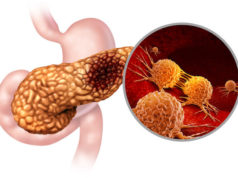According to a recent study done on mice, combining a fasting-like diet with chemotherapy could increase the immune system’s capability of identifying and killing breast cancer and melanoma cells.
Researchers down at the University of Southern California developed the said study, entitled “Fasting-Mimicking Diet Reduces HO-1 to Promote T Cell-Mediated Tumor Cytotoxicity.” This study was published in Cancer Cell days after another study explaining how three-day fasting was declared safe and doable by cancer patients on chemotherapy.
According to study leader, Valter Longo, who is also a professor and director of the USC Longevity Institute at the USC Leonard Davis School of Gerontology, this particular mouse study on breast and skin cancers is the first one to show that a diet similar to fasting could engage the immune system and expose the cancer cells. Longo also noted that this is a more affordable way to make several cancer cells more susceptible to attacks by immune cells while also making the cancer more reactive to chemotherapy.
In previous studies, it’s already known that fasting for short periods enhances the effects of chemotherapy because it starves the cancer cells. Now, the researchers have found that putting mice under a fasting-like diet increases levels of bone marrow progenitor cells that elevates immune cells.
The researchers noted that after fasting, regulatory T-cells called Tregs, a kind of T-cell that impairs the function of tumor-killing T-cells, were expelled from the tumor. This is a result of a decrease in the heme oxygenase (HO-1) enzyme found in Tregs.
They also found that putting the mice on a water-only diet for two days, or on a low-calorie diet for four days, and then administering cyclophosphamide and doxorubicin lowered breast cancer and melanoma growth, while also stimulating healthy cells.
The experiment showed the mice with lower levels of HO-1, which also meant a decrease in infiltrating Tregs. Along with an increased number of T-cells, those changes brought about a better immune response against cancer cells.




























